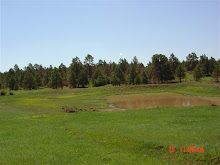New York Times: Op-Ed Columnist, Disaster in the Amazon
By BOB HERBERT
Published: June 4, 2010
BP’s calamitous behavior in the Gulf of Mexico is the big oil story of the moment. But for many years, indigenous people from a formerly pristine region of the Amazon rainforest in Ecuador have been trying to get relief from an American company, Texaco (which later merged with Chevron), for what has been described as the largest oil-related environmental catastrophe ever.
“As horrible as the gulf spill has been, what happened in the Amazon was worse,” said Jonathan Abady, a New York lawyer who is part of the legal team that is suing Chevron on behalf of the rainforest inhabitants.
It has been a long and ugly legal fight and the outcome is uncertain. But what has happened in the rainforest is heartbreaking, although it has not gotten nearly the coverage that the BP spill has.
What’s not in dispute is that Texaco operated more than 300 oil wells for the better part of three decades in a vast swath of Ecuador’s northern Amazon region, just south of the border with Colombia. Much of that area has been horribly polluted. The lives and culture of the local inhabitants, who fished in the intricate waterways and cultivated the land as their ancestors had done for generations, have been upended in ways that have led to widespread misery.
Texaco came barreling into this delicate ancient landscape in the early 1960s with all the subtlety and grace of an invading army. And when it left in 1992, it left behind, according to the lawsuit, widespread toxic contamination that devastated the livelihoods and traditions of the local people, and took a severe toll on their physical well-being.
A brief filed by the plaintiffs said: “It deliberately dumped many billions of gallons of waste byproduct from oil drilling directly into the rivers and streams of the rainforest covering an area the size of Rhode Island. It gouged more than 900 unlined waste pits out of the jungle floor — pits which to this day leach toxic waste into soils and groundwater. It burned hundreds of millions of cubic feet of gas and waste oil into the atmosphere, poisoning the air and creating ‘black rain’ which inundated the area during tropical thunderstorms.”
The quest for oil is, by its nature, colossally destructive. And the giant oil companies, when left to their own devices, will treat even the most magnificent of nature’s wonders like a sewer. But the riches to be made are so vastly corrupting that governments refuse to impose the kinds of rigid oversight and safeguards that would mitigate the damage to the environment and its human and animal inhabitants.
Pick your venue. The families whose lives and culture are dependent upon the intricate web of waterways along the Gulf Coast of the United States are in a fix similar to that of the indigenous people zapped by nonstop oil spills and the oil-related pollution in the Ecuadorian rainforest. Each group is fearful about its future. Both have been treated contemptuously.
The oil companies don’t care. Shell can’t wait to begin drilling in the Arctic Ocean off the northern coast of Alaska, an area that would pose monumental problems for anyone trying to deal with a catastrophic spill. The companies pretend that the spills won’t happen. They always say that their drilling operations are safe. They said that before drilling off Santa Barbara, and in the rainforest in Ecuador, and in the Gulf of Mexico, and everywhere else they drill.
Their assurances mean nothing.
President Obama has suspended Shell’s Arctic drilling permits and has temporarily halted the so-called Arctic oil rush. What we’ve learned from the BP debacle in the gulf, and from the rainforest, and so many other places, is just how reckless and inept the oil companies can be when it comes to safeguarding life, limb and the environment.
They’re dangerous. They need the most stringent kind of oversight, and swift and severe sanctions for serious wrongdoing. At the same time, we need to be searching with a much, much greater sense of urgency for viable energy alternatives. Treating the Amazon and the gulf and the Arctic as if they were nothing more than toxic waste sites is an affront to the planet and all life-forms that inhabit it.
Chevron doesn’t believe it should be called to account for any of the sins Texaco may have committed in the Amazon. A spokesman told me that the allegations of environmental damage were wildly overstated and that even if Texaco had caused some pollution, it had cleaned it up and reached an agreement with the Ecuadorian government that precluded further liability.
The indigenous residents may be suffering (they’re in much worse shape than the people on the gulf coast) but the Chevron-Texaco crowd feels real good about itself. The big money was made, and the trash was left behind.
Read source article here.





